Founded in 1982, Faslane Peace Camp in Scotland clams to be the longest lived of its kind. Crammed into a small roadside verge, the brightly coloured and ramshackle caravans of the camp are located just a few hundred yards from the razor-wire fences of Her Majesty’s Naval Base Clyde, home to the British Trident nuclear… Read more »
We researched Russian trolls and figured out exactly how they neutralise certain news
This article was originally published on The Conversation. Read the original article. Russian “troll factories” have been making headlines for some time. First, as the Kremlin’s digital guardians in the Russian blogosphere. Then, as subversive cyber-squads meddling with US elections. While there has been much sensationalist talk about troll brigades, there have also been thorough… Read more »
What Became of the Norwegian Peacekeeping Forces?
For nearly 20 years, Norway has prioritized contributing to NATO-led operations over UN peacekeeping forces. At the same time, recent research shows that increased commitment to UN operations has a conflict-reducing effect.

Photo: Forsvaret
This year marks the 40th anniversary of the first Norwegian UN soldiers’ departure to Lebanon to serve in UNIFIL (the United Nations Interim Force in Lebanon).
Apart from the Independent Norwegian Brigade Group in Germany in the aftermath of World War II, the UNIFIL effort represented the largest and most wide-ranging contribution that Norway has made to international operations. Over 20,000 Norwegians were involved. In April, this anniversary was marked in various places in Norway. At the same time, we know that Norway currently has fewer than 100 personnel engaged in UN peacekeeping operations. What has become of the Norwegian peacekeeping forces?
Norway has been an active contributor to international operations since the end of World War II, but the nature of its involvement changed after the end of the Cold War, when the number of operations in which Norway participated grew significantly.Read More
This Week in South Sudan – Week 31
Tuesday 31 July The Sudan People’s Liberation Movement-North led by Malik Agar praised progress towards a negotiated settlement in South Sudan. Wednesday 1 August The People’s Liberal Party urged Sudanese mediators to intervene for the release of activist Peter Bier Ajak in South Sudan. Friday 3 August President Salva Kiir promoted his wife Mary Ayen… Read more »
How Do We Decolonize Peace Research?
This is a guest blog post by a student who attended this year’s Peace Research course at the International Summer School 2018.
The imprint of war on my life and on those of other young people living in the Global South is the reason I chose to participate in the peace research course at the PRIO Summer School. When my family escaped Sierra Leone’s civil war in 1994, I was fortunate to study abroad in several countries where I developed cross-cultural perspectives that have been integral to my work as a peace scholar. Attending the International Summer School has been another great opportunity to travel to Norway for the first time and to visit a world-renowned institute where I could further explore some of my doctoral research questions on education, gender and conflict.
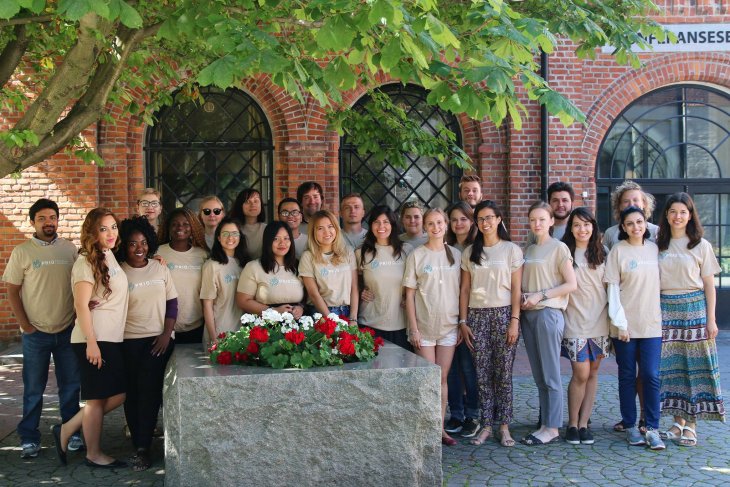
Summer School 2018. Photo: Marit Moe-Pryce / PRIO
Producing Reliable Data for SDG 16: The Case of Conflict Data
In 2015, the United Nations stated unequivocally in the last progress report for the Millennium Development Goals that “conflict remains the largest obstacle to development”. Yet, reducing conflict and violence in the world was never a target in and of itself under the MDGs. This changed with the inclusion of Goal 16 as part of the Sustainable Development Goals.
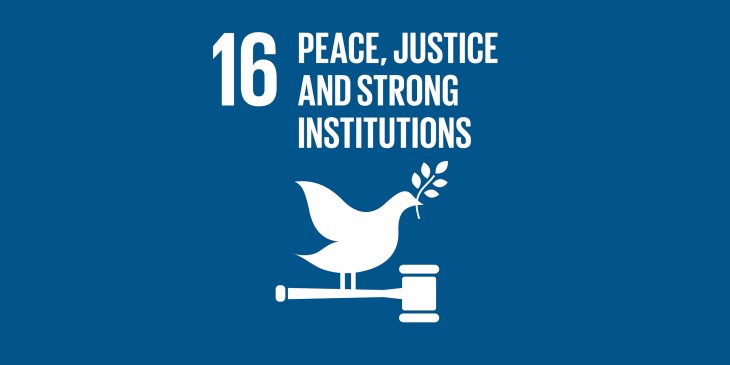
SDG 16 calls for the world to achieve peaceful societies. The UN World Data Forum represents a welcome opportunity to take stock of where we stand today in terms of data and statistics on conflict and violence in the world, and of what we know about how data on violent conflicts can be used to monitor and inform discussions about sustainable development.Read More
This Week in South Sudan – Week 29 and 30
Monday 16 July Ugandan President Museveni called for European countries to ease sanctions on South Sudan. Daily Monitor: “South Sudan Talks: A Lasting Peace or Marriage of Convenience?” Wednesday 18 July President Salva Kiir sacked the foreign affairs minister Deng Alor Kuol and appointed Nhial Deng Nhial to the position. The UN Security Council imposed… Read more »
The Norwegian Defeat in Afghanistan
The Norwegian involvement did not produce lasting results in Afghanistan, but it did foster goodwill with the United States and other allies. But the negative international ripple effects are serious, including an erosion of the commitment to peaceful conflict resolution, as well as an undermining of international norms and rules.
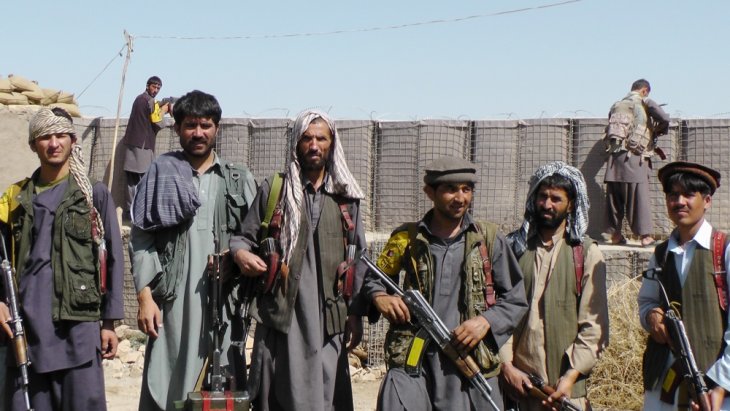
One of a large number of unofficial armed groups. Photo: Bethany Matta / IRIN
U.N. Peacekeeping Really Can Be Effective. Here’s How We Tabulated This
Syria’s seven years of conflict have had devastating consequences, with hundreds of thousands of people dead and more than 4 million refugees. Would the story be different if the United Nations Security Council had managed to come to an agreement and deployed a peacekeeping operation (PKO) early in the conflict?
Would a PKO have been able to resolve this conflict?
Despite popular conceptions to the contrary (see also here and here), a large body of research has shown that PKOs are surprisingly effective at keeping the peace.
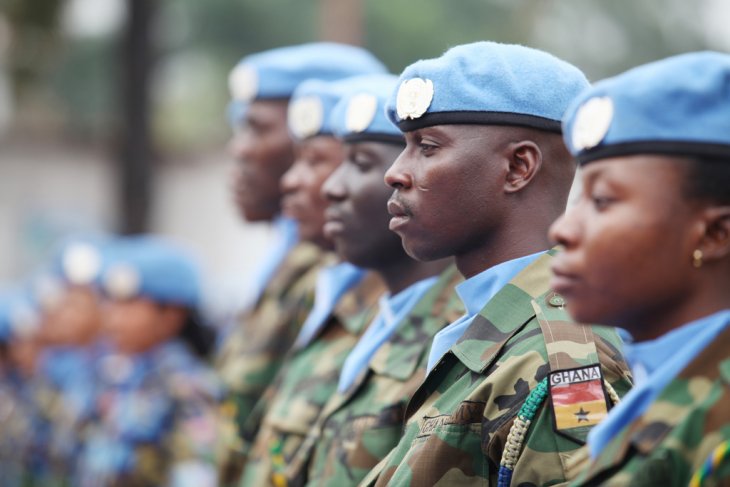
UN Peacekeepers Day celebration in the DR Congo. PHOTO: Wikimedia Commons
Record deaths at sea: will ‘regional disembarkation’ help save lives?
Never has it been more dangerous for people in search of protection to make the crossing to Europe. The estimated death rate on boat migration journeys across the Mediterranean has risen from 4 per 1000 in 2015 to 24 per 1000 in the first four months of 2018, according to available data.
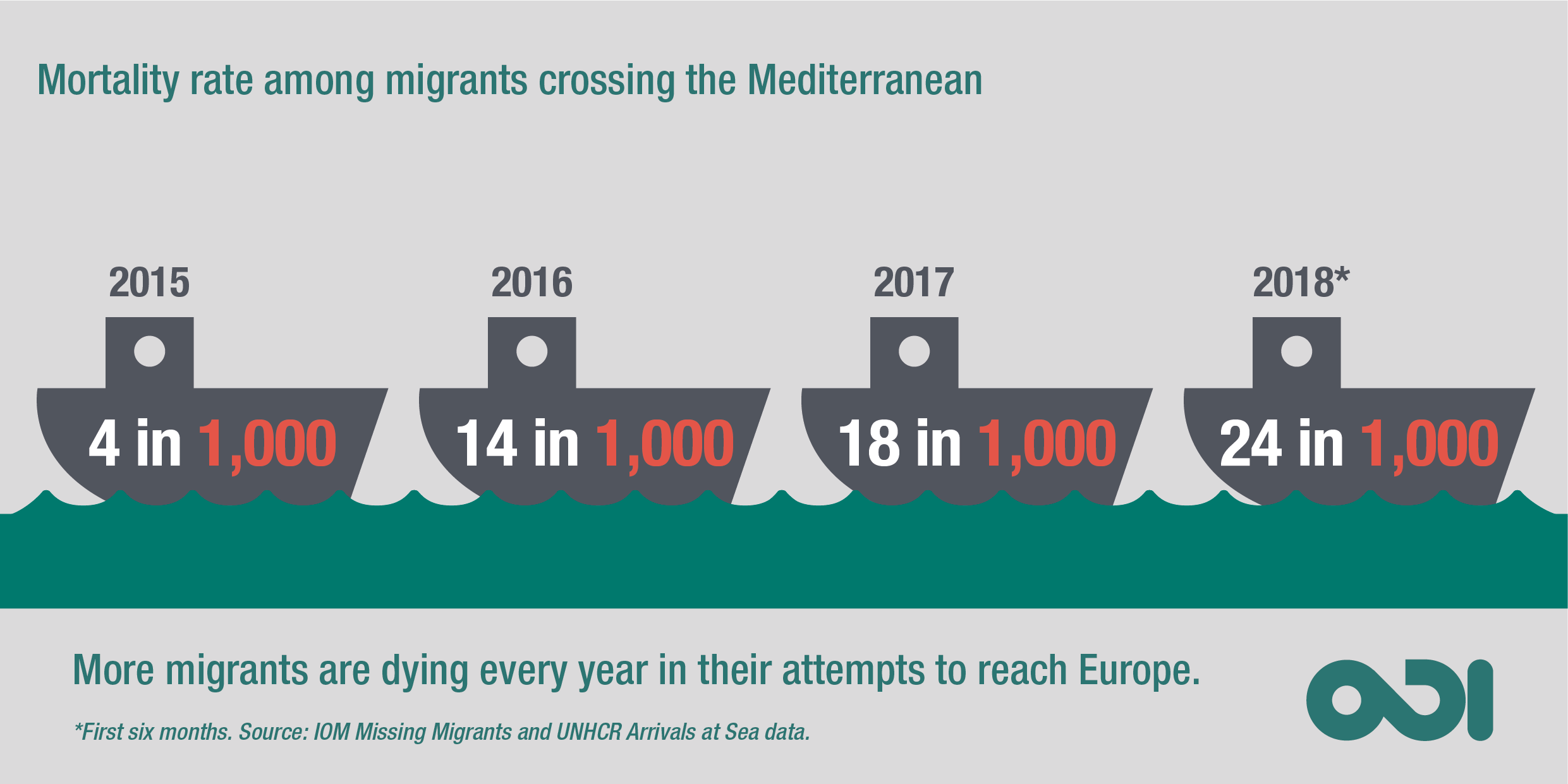
While the death rate is higher than ever, the size of migration flows across the Mediterranean has shrunk dramatically. The number of refugees and other migrants who crossed the Mediterranean in June was down 94% compared to the peak of the migration and refugee crisis in 2015. This means that migration policy-makers now have an opportunity to move on from crisis response to a search for long-term solutions.